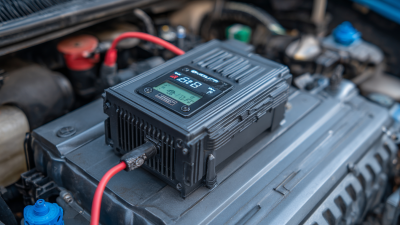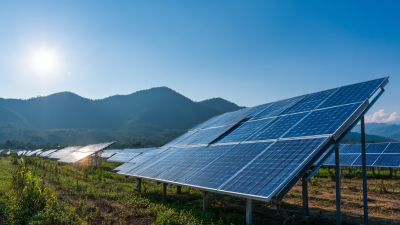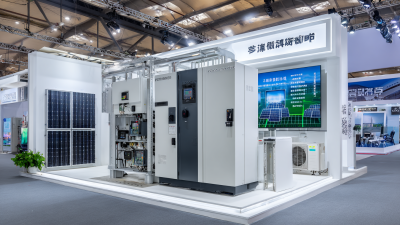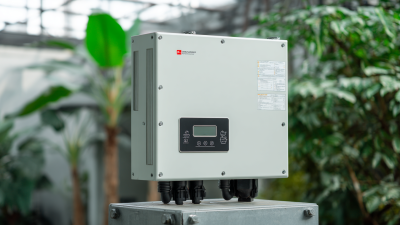
-
Home
-
About Us
-
Products
-
Total Solution
-
News
-
Blog
-
Contact Us
Leave Your Message
-
-
Phone
-
E-mail
-
Whatsapp
-
Whatsapp



As the global demand for sustainable energy solutions escalates, particularly in light of recent reports indicating a staggering 50 percent growth in the market, Off Grid Inverters have emerged as essential components in this transition. According to the International Energy Agency (IEA), the adoption of off-grid technologies is pivotal, with projections suggesting that by 2025, nearly 2 billion people will still lack access to reliable electricity. Off Grid Inverters facilitate access to renewable energy sources such as solar and wind, enabling unique opportunities for energy independence, particularly in remote areas.
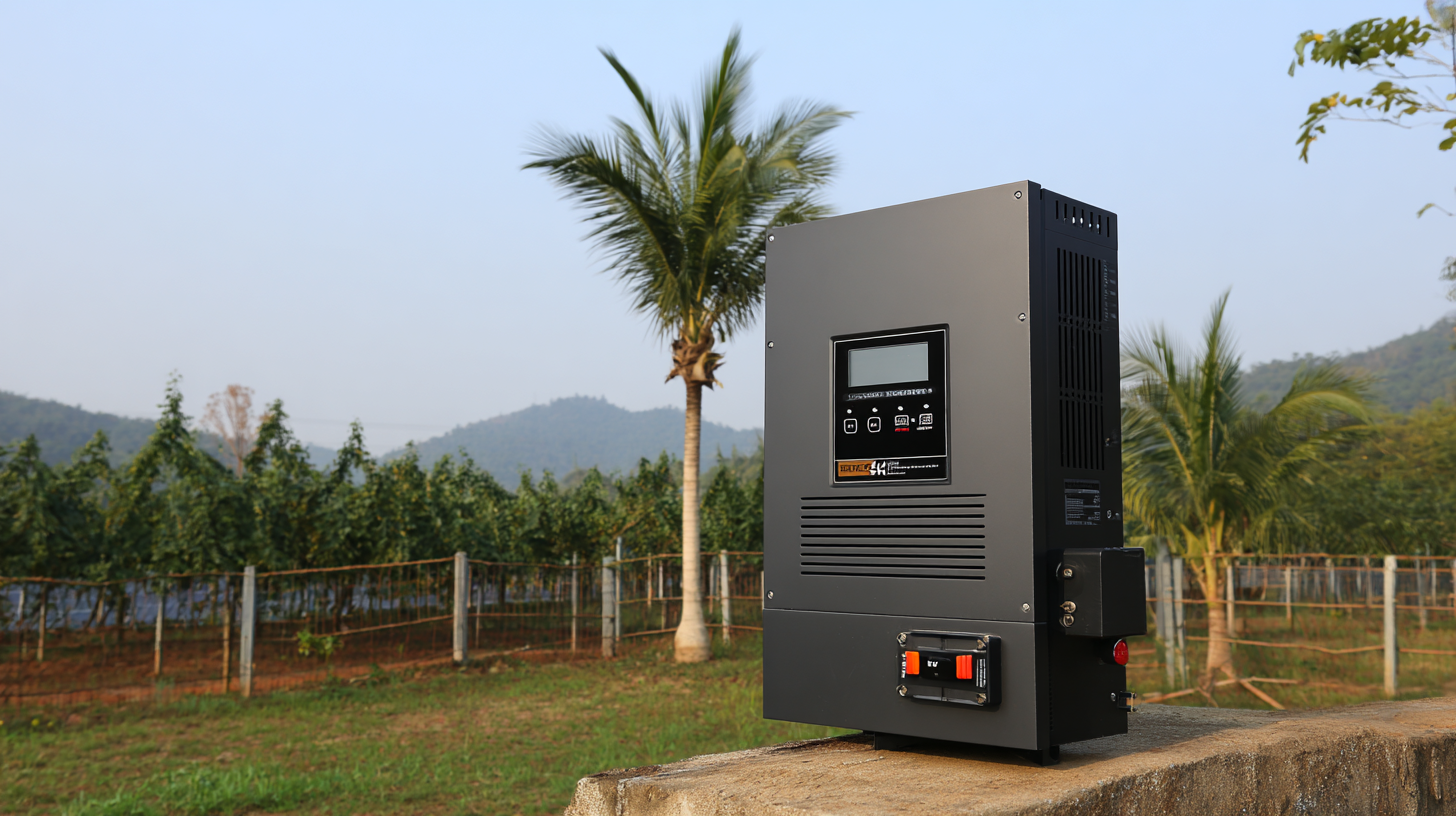
The rising popularity of Off Grid Inverters is not merely a trend; it reflects a significant shift in consumer preferences toward clean energy systems. A recent study by Grand View Research highlighted that the global off-grid inverter market is set to reach approximately $13 billion by 2027, fueled by advancements in technology and increasing environmental awareness. These inverters play a critical role in enhancing energy efficiency and ensuring the effective integration of renewable sources, thus making them indispensable in the quest for a sustainable energy future.
Off-grid inverters play a crucial role in advancing sustainable energy systems, particularly as the demand for renewable energy solutions continues to rise. These devices enable the conversion of direct current (DC) electricity generated from solar panels or wind turbines into alternating current (AC), making it usable for everyday appliances. By facilitating the integration of renewable energy sources, off-grid inverters enhance energy independence, reducing reliance on fossil fuels and promoting a cleaner environment.
Furthermore, the importance of off-grid inverters extends beyond mere energy conversion. They are pivotal in energy storage solutions, allowing excess energy to be stored for later use. This capability is essential in off-grid settings where energy availability can be intermittent. As more households and businesses seek to adopt sustainable practices, the demand for efficient, reliable off-grid inverters has seen substantial growth. By harnessing local renewable resources, communities can achieve energy resilience, ensuring electricity access even in remote or underserved areas, thereby contributing to a more sustainable future.
The demand for off-grid inverters is witnessing a remarkable surge, driven by several current trends that align with the global push for sustainable energy solutions. As more consumers and businesses alike adopt renewable energy sources, the technology supporting these systems, particularly off-grid inverters, is becoming increasingly essential. This growth is not only fueled by the desire for energy independence but also by the need to integrate smarter and more efficient energy management systems into our daily lives. The increasing prevalence of electric vehicle charging stations and the expansion of solar installations further accentuate this trend.
Moreover, government incentives and policies promoting renewable energy adoption have contributed significantly to the market's expansion. With a projected growth rate of approximately 50%, the off-grid inverter market is set to benefit from the growing investment in solar energy and battery storage solutions. These developments highlight a broader shift towards cleaner energy alternatives, indicating a robust potential for continued growth in this sector over the coming years. The future of off-grid inverters appears bright, as they play a pivotal role in making sustainable energy solutions more accessible and efficient for consumers globally.
| Region | Market Demand in 2022 (Units) | Projected Demand in 2023 (Units) | Growth Rate (%) | Primary Application |
|---|---|---|---|---|
| North America | 150,000 | 225,000 | 50% | Residential |
| Europe | 120,000 | 180,000 | 50% | Commercial |
| Asia-Pacific | 200,000 | 300,000 | 50% | Industrial |
| Latin America | 90,000 | 135,000 | 50% | Agricultural |
| Middle East & Africa | 70,000 | 105,000 | 50% | Backup Power |
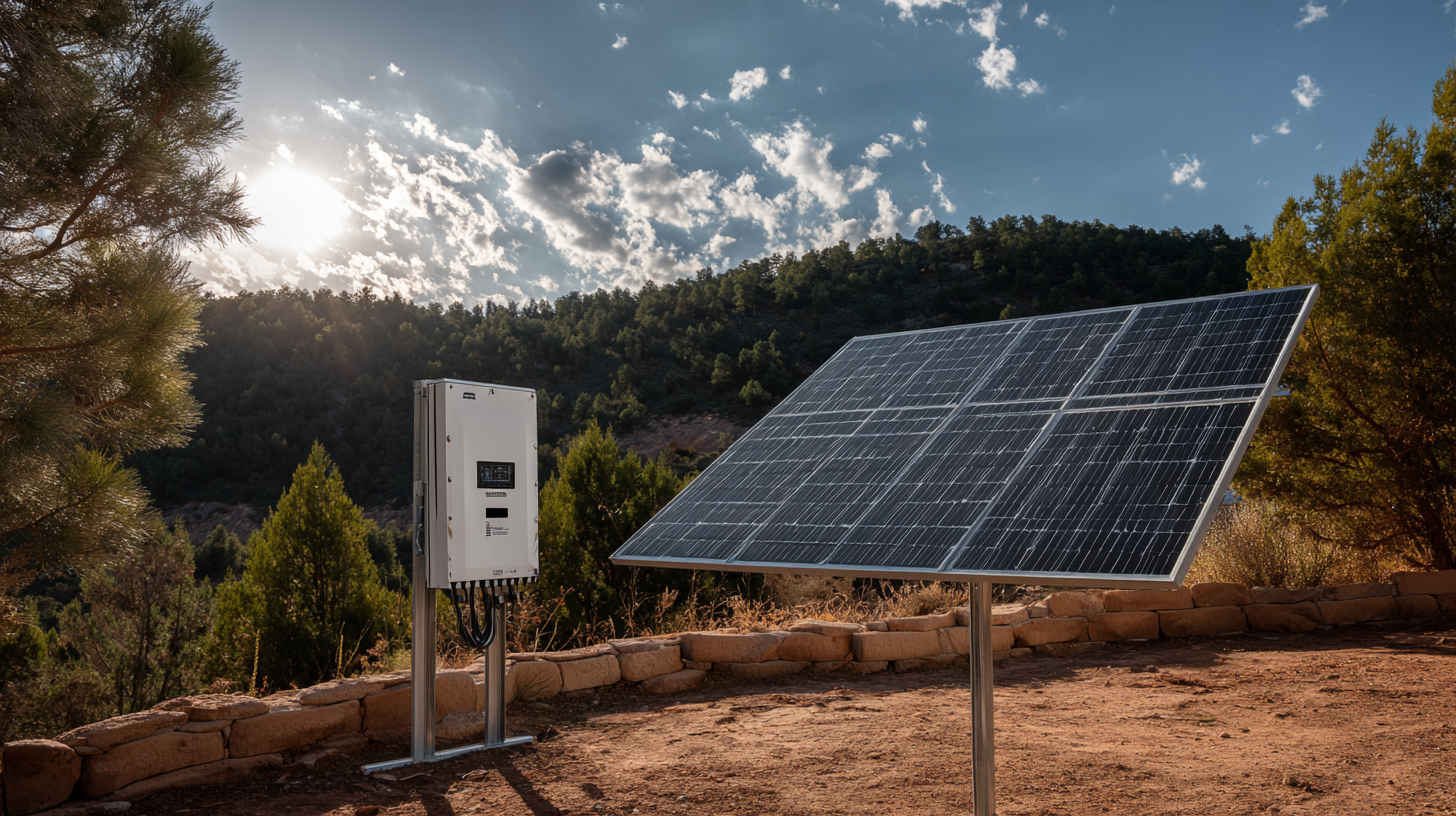 Off-grid inverters play a pivotal role in the integration of renewable energy sources, particularly in an era characterized by a surging demand for sustainable energy solutions. According to a report by the International Renewable Energy Agency (IRENA), the global market for renewable energy technologies is expected to grow by approximately 50% over the next decade. This growth highlights the necessity for efficient energy conversion technologies, and off-grid inverters are crucial for facilitating this transition. They enable solar, wind, and other renewable energy systems to operate independently from the traditional grid, making them essential for energy independence and resilience.
Off-grid inverters play a pivotal role in the integration of renewable energy sources, particularly in an era characterized by a surging demand for sustainable energy solutions. According to a report by the International Renewable Energy Agency (IRENA), the global market for renewable energy technologies is expected to grow by approximately 50% over the next decade. This growth highlights the necessity for efficient energy conversion technologies, and off-grid inverters are crucial for facilitating this transition. They enable solar, wind, and other renewable energy systems to operate independently from the traditional grid, making them essential for energy independence and resilience.
Key features of off-grid inverters include their ability to handle variable power inputs, advanced battery management systems, and compatibility with a wide range of renewable energy sources. A study by Navigant Research reveals that advanced off-grid inverter technologies can enhance system efficiency by up to 15%, significantly improving the overall performance of renewable energy systems. Additionally, these inverters are designed to manage energy storage effectively, optimizing the use of excess energy generated during peak production periods. As more industries and households seek to embrace renewable solutions, the critical functionalities of off-grid inverters will be indispensable for ensuring a reliable, sustainable energy future.
 Off-grid inverters are increasingly recognized as vital components of sustainable energy solutions, particularly as demand surges by 50 percent annually. Unlike traditional power solutions that rely heavily on centralized grids, off-grid inverters facilitate the use of renewable energy sources such as solar and wind, promoting energy independence and resilience. According to the International Renewable Energy Agency (IRENA), the off-grid solar market is projected to reach $10 billion by 2025, underscoring a significant shift in consumer preferences towards clean energy technologies.
Off-grid inverters are increasingly recognized as vital components of sustainable energy solutions, particularly as demand surges by 50 percent annually. Unlike traditional power solutions that rely heavily on centralized grids, off-grid inverters facilitate the use of renewable energy sources such as solar and wind, promoting energy independence and resilience. According to the International Renewable Energy Agency (IRENA), the off-grid solar market is projected to reach $10 billion by 2025, underscoring a significant shift in consumer preferences towards clean energy technologies.
In a comparative analysis, off-grid inverters show distinct advantages over traditional power solutions. Traditional systems often entail high energy losses during transmission, with estimates suggesting an average loss of 6 to 8 percent. Off-grid inverters, in contrast, maximize efficiency by converting DC power generated from renewable sources directly into usable AC power, minimizing transmission losses. This not only enhances energy efficiency but also reduces the carbon footprint of energy consumption significantly.
Tips: When considering an off-grid inverter, prioritize ones with integrated smart technology. These allow for real-time monitoring of energy production and consumption, making it easier to optimize your energy use. Additionally, opting for models with a high inverter efficiency rating—above 95%—can further ensure that you get the most energy from your renewable resources.
The future of off-grid inverter technology is poised for a revolution, driven by the ever-increasing demand for sustainable energy solutions. As we look towards 2025 and beyond, innovations in this sector are focusing on improving efficiency, reducing costs, and enhancing user-friendliness. One key area of development is the integration of artificial intelligence and smart grid technology, which can optimize energy management, predict energy needs, and facilitate seamless integration with renewable energy sources such as solar and wind.
Moreover, advancements in energy storage solutions are complementing the evolution of off-grid inverters. New battery technologies, including solid-state and flow batteries, are emerging, providing longer life cycles and higher energy densities. These innovations will enable off-grid systems to store energy more effectively, ensuring a consistent power supply despite fluctuations in renewable energy generation. As a result, off-grid inverters will become not only essential components of sustainable energy setups but also smarter and more versatile systems that empower users to harness and manage energy independent of traditional grids efficiently.


